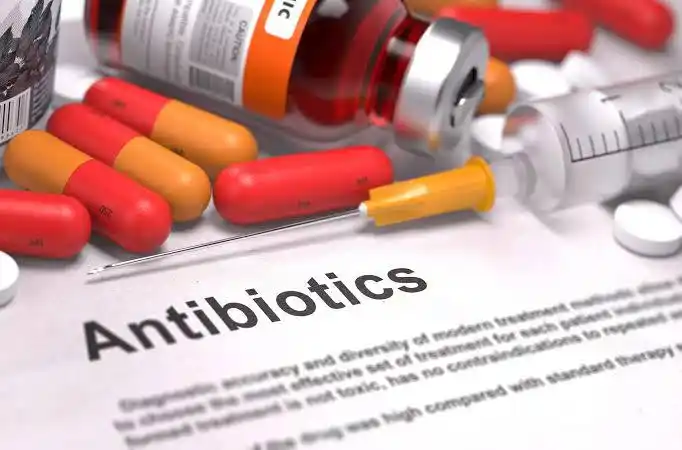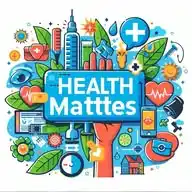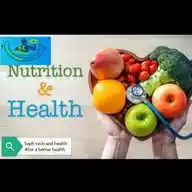
U & Ur health
13 subscribers
Similar Channels
Swipe to see more
Posts

*ABUSE OF ANTIBIOTIC (1)* Antibiotic overuse and misuse lead to antimicrobial resistance, where bacteria evolve to survive antibiotics, making infections harder to treat. This has serious consequences for individual and public health, potentially increasing mortality and making previously manageable illnesses life-threatening. *Effects of Abuse of Antibiotics* 1. Overuse and Misuse Fuel Resistance: I. Taking antibiotics for viral infections: Antibiotics only work on bacterial infections, not viral ones like colds or the flu. Taking them for these doesn't help and contributes to resistance. ii. Not finishing the course: Antibiotics should be taken as prescribed, for the full duration. Stopping early can allow resistant bacteria to survive and multiply. iii. Using leftover antibiotics: This can be dangerous as the antibiotic might not be the right one for the new infection, and it could also contribute to resistance. iv. Over-the-counter availability: In some places, antibiotics are sold without a prescription, which can lead to inappropriate use and further resistance. _to be continued…_ #u&urhealth# #stoptheabuseofantibiotic#


*ABUSE OF ANTIBIOTICS (2)* 2. Consequences of Antibiotic Resistance: *Increased mortality: Antibiotic-resistant infections can be harder to treat and lead to serious complications, including death. *Lengthier hospital stays: Treating resistant infections often requires more time and resources. *Higher treatment costs: More expensive and potent antibiotics, along with more intensive care, are needed to combat resistance. *Reduced treatment options: As bacteria become resistant to multiple antibiotics, doctors may have fewer effective choices. *Surgical risks: Antibiotic resistance can increase the risk of complications from surgery, as wounds are more susceptible to infection. 3. Addressing the Problem: *Proper antibiotic use: Prescribing antibiotics only when necessary and following guidelines is crucial. *Public education: Raising awareness about the dangers of misuse and the importance of finishing courses is vital. *Infection prevention: Practicing good hygiene and vaccination can help prevent infections in the first place. *Development of new antibiotics: Research into new antibiotics and alternative treatments is essential. *International collaboration: Sharing best practices and coordinating efforts to combat resistance is crucial. #u&urhealth# #stoptheabuseofantibiotic# #stayhealthy#


***How to Respect and Care for Your Skin** Your skin is an essential part of your body that requires dedicated care. By treating it well, you can achieve the healthy and radiant skin you desire. **Functions of Your Skin** 1. **Protection**: Your skin serves as a barrier, protecting your body from germs, dirt, and illness. 2. **Temperature Regulation**: It plays a crucial role in controlling your body temperature. 3. **Sensitivity**: Your skin alerts you to potential dangers, such as heat or sharp objects, acting as an essential warning system. 4. **Vitamin D Absorption**: Your skin is responsible for converting sunlight into vitamin D, which is vital for healthy bones and a robust immune system. 5. **Healing**: Skin has a remarkable ability to repair itself from injuries quickly. 6. **Reflection of Internal Health**: The condition of your skin often mirrors what is happening inside your body. It's important to care for it and avoid harmful practices that can lead to damage. **Signs to know you that you are destroying your skin** 1. **Skin Bleaching**: Bleaching can lead to burns, stretch marks, and improper healing. It’s best to embrace your natural skin tone. 2. **Excessive Scrubbing**: Rubbing your skin too hard can irritate it and cause dryness, making it more vulnerable to health issues. 3. **Ingredients in Products**: Pay attention to the ingredients in your skincare products—avoid harmful substances like mercury, lead, hydroquinone, and steroids. 4. **Lack of Sunscreen**: Not using sunscreen can result in dark spots, accelerated aging, and increased skin cancer risk. In Nigeria, opt for a broad-spectrum sunscreen with at least SPF 50 for effective protection against UVA and UVB rays. 5. **Hydration and Nutrition**: A balanced diet and adequate water intake are essential for healthy skin. 6. **Antiseptic Soap Usage**: While antiseptic soap is beneficial for washing hands, using it on your body can disrupt your skin’s natural flora and leave it more vulnerable to infections. It’s best to use gentle cleansers meant for your specific skin type. 7. **Seeking Professional Help**: If you experience serious skin issues like acne or other conditions, it’s important to consult a certified dermatologist or healthcare professional. Proper guidance can help you protect and restore your skin effectively. By understanding your skin's needs and taking proactive steps, you can maintain its health and vitality for years to come. #u&urhealth# #healthyliving# #leturskinglow# #aproko_dr#


*MYTH ABOUT MICROWAVE * There is a common misconception that microwaves can cause cancer. However, it's important to understand how microwaves work. They use electromagnetic waves to heat food by exciting the water molecules within it, which generates heat and warms the food evenly. It's essential to clarify that the type of radiation used by microwaves does not have the same harmful effects as other forms of radiation; it does not alter the composition of the food in any detrimental way. That said, when using a microwave, it's best to avoid plastic containers, as they may release harmful substances when heated. Instead, opting for glass or ceramic plates can ensure safer cooking practices.

HOW TO CHECK YOUR BLOOD PRESSURE CORRECTLY & ACCURATELY Regularly and accurately checking your blood pressure is essential for maintaining a balanced and healthy lifestyle. Inaccurate readings can lead to misunderstandings about your health, so it's important to follow the correct procedures. Here are some helpful guidelines for checking your blood pressure effectively: 1. **Rest Before Checking**: Make sure to check your blood pressure when you're in a state of rest. If you've recently experienced significant stress, take at least 10 minutes to relax before measuring. 2. **Proper Positioning**: Avoid checking your blood pressure while lying down. Instead, sit in an upright position with your feet flat on the floor and your back supported. 3. **Support Your Arm**: Rest your arm comfortably on a table at heart level. This will help ensure an accurate reading. 4. **Choose the Right Cuff Size**: It's crucial to use a blood pressure cuff that fits properly. A cuff that is too small may yield a falsely high reading, while a cuff that is too large can result in a deceptively low reading. 5. **Stay Quiet**: During the measurement, remain quiet and still to avoid any disturbances that could affect the reading. By following these guidelines, you can ensure that your blood pressure readings are accurate and reflective of your true health status.

Did you know that Not every itch indicates a toilet infection. It’s important to be mindful of the products you use; for instance, using perfume soaps to wash the vaginal area can lead to irritation and itching. Additionally, the inappropriate use of antibiotics can also contribute to discomfort and changes in odor. Focusing on gentle, unscented products and using medications responsibly can help maintain vaginal health.

*WHOLE FOODS ARE BETTER THAN PROCESSED FOODS* Whole foods, such as eggs, chia seeds, roots, carrots, and beans, offer tremendous health benefits. Eggs serve as one of the most affordable sources of protein, ensuring that nearly all the protein you consume efficiently supports your body's necessary functions. Chia seeds are exceptional—they help manage cholesterol levels and are richer in vitamin C than oranges. Roots provide complex carbohydrates that gently elevate your blood sugar, making them a great energy source without sudden spikes. Processed foods can rapidly raise blood sugar levels, which is why it's crucial to prioritize whole foods in your diet. Whole foods significantly lower the risk of developing type 2 diabetes, certain cancers, heart diseases, and other health issues. In contrast, reliance on processed foods can expose you to various illnesses. While there are times when processed foods may be necessary, they should never dominate your daily meals. Embrace whole foods for a healthier, more vibrant life! Credit: aproko_doctor

FISHES TO AVOID AS A PREGNANT WOMAN As a pregnant woman, it's important to be mindful of the types of fish you consume for the health of you and your developing baby. Specifically, it's advisable to avoid the following: - **King Mackerel** - **Shark** These fish are categorized as deep-water species, and they can accumulate higher levels of mercury due to their oceanic environment. Mercury exposure is a concern, as it can potentially harm your baby’s developing nervous system and brain. While fish can be an excellent addition to your diet due to its many health benefits, it's best to steer clear of these particular types for the sake of your baby's well-being. Make sure to choose safer alternatives to ensure you get the nutrients you need while keeping your little one safe.

*USING MILK TO TAKE ANTIBIOTIC IS NOT IDEAL* It's important to be mindful of what you consume when taking antibiotics. Taking antibiotics alongside milk is not ideal, as the calcium in milk can interfere with the effectiveness of the medication. This interaction can prevent the antibiotic from entering the bloodstream and doing its job effectively. In addition to milk, other dairy products like yogurt, cream cheese, and Alfredo pasta can also hinder the absorption of antibiotics. To ensure that the medication works properly, it's best to wait about 3 to 4 hours after taking the antibiotic before enjoying these dairy items. By doing so, you can help your treatment be as effective as possible. credit: aproko_doctor

If you find yourself experiencing a nosebleed, managing it properly is crucial for a smooth recovery. Avoid tilting your head back, as this can result in blood flowing to your throat, which may cause nausea or vomiting. Instead, lean forward gently to better handle the situation. Apply consistent, gentle pressure to your nose, holding it firmly in place. Furthermore, using an ice pack or a cold compress on the back of your neck can effectively constrict the blood vessels that supply your nose, potentially diminishing the bleeding. Should the nosebleed continue despite these steps, it’s wise to consult your doctor for a thorough evaluation and appropriate care.













